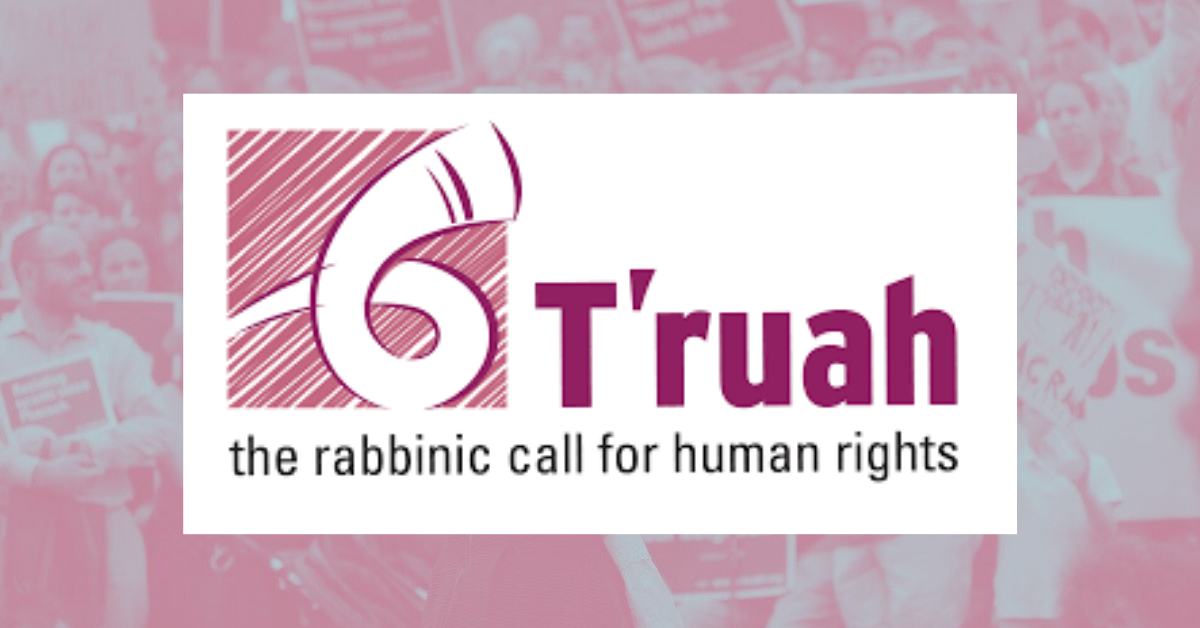NEW YORK — Today, T’ruah, a rabbinic human rights organization that represents over 2,000 rabbis and cantors and their communities, issued the following statement calling for an end to violence sparked by an Israeli youth attack on Palestinians and subsequent death of Israeli Ahuvia Sandak.
Rabbi Jill Jacobs, executive director of T’ruah, released the following statement:
“We condemn the violent riots by Israeli settlers over the past several weeks, including last night’s horrifying attacks, in which rioters invaded Palestinian homes, broke windows, threw stun grenades, and threw rocks, including one that hit a five-year-old boy in the face. Last week, an 11-year-old Palestinian girl was wounded in her face by a rock while playing outside.
“Last night’s attacks come after weeks of violent protests following the death of 16-year-old Ahuvia Sandak z”l after the car in which he was riding overturned. We mourn with the Sandak family over their loss.
Though the precise circumstances of his death are being investigated, we do know that Sandak and his friends were driving through the West Bank, allegedly throwing stones at Palestinians, when an Israeli police vehicle chased them, in a series of events leading to the crash. While those who throw rocks, which can maim or kill, can expect to experience legal consequences, death is certainly too high a price to pay. The great hurt over Sandak’s death is more than understandable.
“Anger over Sandak’s death, however, does not justify violence. Over the past weeks, protests and riots in Jerusalem and in the West Bank have included throwing stones at Israeli police and soldiers, attempting to set fire to a police station, attacking a Palestinian driver and passengers in Jerusalem, throwing stones at Palestinian cars and individuals, as well as the incursions into Palestinian homes described above. The permissive response to this violence, including the hands-off attitudes of police and the failure to investigate and indict suspects in the violence, indicates the extent to which the settler agenda has seized control of Israeli politics. This approach both encourages and abets an increase of violence, and may lead to retribution and an escalation in the current cycle of violence.
“Under its laws and international human rights laws, the State of Israel has a responsibility to ensure the safety and security of Palestinians in the occupied territories, as well as of its own citizens. By ignoring the ongoing violence, Israel is abdicating its responsibilities toward both Palestinians living under occupation and toward its own citizens.
“In this week’s Torah portion, the Israelites prepare for liberation from more than four centuries of slavery. The central lesson of the exodus, per the Torah, is that our own oppression should compel us to prevent the oppression of others—even to the point of commanding us not to hate the Egyptians, despite our enslavement under them (Deuteronomy 23:7). This week, the Torah teaches that “there shall be one law for the citizen and the non-citizen among you.” (Exodus 12:49) Both international law and Jewish law demand that the State of Israel protect all of those living under its jurisdiction from violence, and hold perpetrators accountable.
“We call on the Israeli government to investigate and indict the perpetrators of this violence, and to protect Palestinians from further attack. We call on our fellow Jewish organizations to join us in condemning this violence and to insisting that Israel fulfill its Jewish and human rights obligations to everyone living under its jurisdiction.”
T’ruah: The Rabbinic Call for Human Rights mobilizes a network of more than 2,000 rabbis and cantors from all streams of Judaism that, together with the Jewish community, act on the Jewish imperative to respect and advance the human rights of all people. Grounded in Torah and our Jewish historical experience and guided by the Universal Declaration of Human Rights, we call upon Jews to assert Jewish values by raising our voices and taking concrete steps to protect and expand human rights in North America, Israel, and the occupied Palestinian territories.

